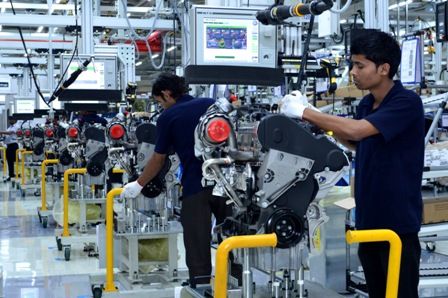Automobile Engineering in 2024: Is It Worth Pursuing?
Published On 13/6/2024, 3:52:42 pm Author Hritik BaberwalWhether you’re passionate about electric vehicles, interested in the potential of autonomous and connected cars, or driven by the desire to create more sustainable transportation solutions, automobile engineering could be the right choice for you. So, if you’re considering a career in this field, now could be the perfect time to take that leap.

The world of engineering is vast and diverse, with numerous disciplines and specializations to choose from. One such field that has always been at the forefront of innovation and technology is Automobile Engineering. But as we stand in the year 2024, a question arises - is it worth pursuing a career in Automobile Engineering?
The automobile industry is currently undergoing a significant transformation, driven by advancements in technology and changes in consumer behavior. The rise of electric vehicles, autonomous driving technologies, and connected cars are reshaping the industry, creating new opportunities and challenges for automobile engineers.
The Impact of Electric Vehicles
The shift towards electric vehicles (EVs) has created a demand for engineers who understand not only traditional automotive engineering principles but also electrical and electronic systems. This includes battery technology, power electronics, and electric motor drives, among others.
The rise of electric vehicles (EVs) has indeed necessitated a paradigm shift in the educational curriculum for automobile engineering. The syllabus has been revamped to incorporate a range of new topics that equip future engineers with the skills needed to thrive in this evolving landscape.
Understanding Battery Management Systems (BMS) has become crucial. BMS are sophisticated electronic systems that manage a rechargeable battery (cell or battery pack), such as by monitoring its state, calculating secondary data, reporting that data, protecting the battery, controlling its environment, and balancing it. This knowledge is essential for ensuring the safety, performance, and longevity of EV batteries.
The integration of mechanical engineering, electronics, computer science, and control engineering – known as Mechatronics – is at the heart of EV design. This interdisciplinary approach enables the creation of simpler, more reliable, and versatile systems. It’s particularly relevant in the development of regenerative braking systems and advanced driver-assistance systems (ADAS).
A solid understanding of Chemistry, particularly electrochemistry, is also vital. This includes studying the properties and behaviours of different types of batteries (such as lithium-ion, solid-state, and flow batteries), understanding the chemical reactions involved in energy storage and release, and exploring materials science to develop more efficient and sustainable batteries.
Expect the syllabus to be vast
Here are some of the key subjects:
Fundamentals of Mechanical Engineering: This subject covers the basic principles of mechanical engineering, which forms the foundation for automobile engineering.
Engineering Mathematics: This subject involves the application of mathematical methods and techniques that are fundamental in engineering.
Engineering Graphics: This subject involves learning to visualize and represent engineering designs.
Automobile Chassis and Transmission: This subject covers the design and operation of the chassis and transmission system of an automobile.
Automobile Engines: This subject involves the study of the design, operation, and maintenance of automobile engines.
Vehicle Body Engineering: This subject covers the design and construction of the vehicle body.
Automotive Electrical Systems: This subject involves the study of electrical systems used in automobiles, including ignition systems, lighting, and other electrical components.
Automotive Electronics: This subject covers the electronic systems used in modern automobiles, including engine management systems, safety systems, and infotainment systems.
Vehicle Dynamics: This subject involves the study of the forces acting upon a moving vehicle, including friction, gravity, and aerodynamic drag.
Automotive Safety: This subject covers the safety systems used in automobiles, including passive and active safety systems.
Alternative Fuels and Energy Systems: This subject involves the study of alternative fuels such as biofuels, hydrogen, and electric power, and their application in automobiles.
Automotive Pollution and Control: This subject covers the impact of automobiles on the environment and methods to control and reduce pollution.
Computer-Aided Vehicle Design: This subject involves using computer software to design vehicles and their components.
Automotive HVAC: This subject covers the heating, ventilation, and air conditioning systems used in automobiles.
Vehicle Maintenance: This subject involves the upkeep and repair of vehicles.
Emerging trends in Automobile Engineering such as Autonomous Vehicles, Connected Vehicles, Electric Mobility, Hydrogen Fuel Cell Technology, and Blockchain for Automotive Security are also being increasingly incorporated into the syllabus.
Who should choose Automobile Engineering
Automobile Engineering is an ideal field of study for individuals who have a deep passion for vehicles and are intrigued by the mechanics and functionality of cars, bikes, trucks, and other types of vehicles. This field is particularly suited for those who enjoy problem-solving, as it involves designing new vehicles and troubleshooting issues with existing ones. It requires strong technical aptitude, as it involves understanding complex systems and components, and using this knowledge to improve vehicle performance and safety. Additionally, creativity is a valuable asset in this field, as engineers often need to come up with innovative solutions to design challenges.
















